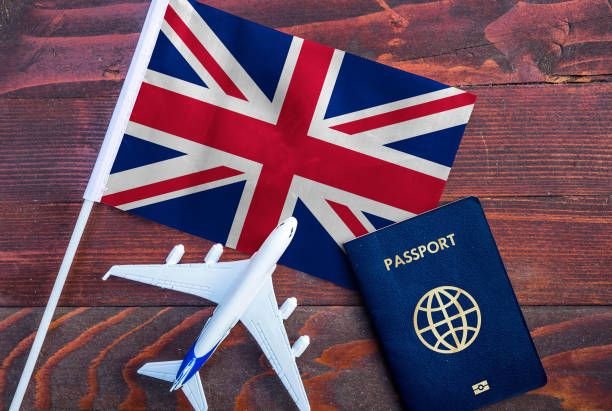Traveling with a child to Europe requires careful planning and compliance with visa regulations, particularly for Nigerian nationals. Children under the age of 18 must obtain their own visa to travel to European countries, including those in the Schengen Area. The application process for a European visa for a Nigerian child involves specific documentation, consent from guardians, and adherence to local embassy or consulate requirements.
This comprehensive guide provides step-by-step instructions on how to apply for a European visa for a Nigerian child, ensuring you have all the necessary information to navigate the process smoothly.
Understanding European Visa Requirements for Children
A European visa for children follows the same general framework as for adults but includes additional considerations for minors. For Nigerian children, the most common visa type is the Schengen Visa, allowing travel to 27 European countries for up to 90 days within a 180-day period. This visa covers purposes such as tourism, visiting family, or education-related travel.
Key Features of the European Visa for Children:
- Visa Type: Typically a Schengen Short-Stay Visa for trips under 90 days.
- Individual Visa Requirement: Each child must have their own visa application, regardless of age.
- Parental Consent: Required for children traveling with one parent or a guardian.
- Purpose of Travel: Includes tourism, family visits, medical treatment, or study.
For country-specific visa requirements, consult the Schengen Visa Information website.
Eligibility Criteria for Nigerian Children
Before beginning the application process, ensure the child meets the basic eligibility criteria:
- Age: Children under 18 years of age are considered minors and require parental consent for international travel.
- Valid Passport: The child must have a Nigerian passport valid for at least three months beyond the intended departure date from Europe.
- Purpose of Travel: Clear justification for the trip, such as family visits, tourism, or study.
- Proof of Financial Means: Evidence that expenses for the child’s trip will be covered.
Documents Required for a Child’s European Visa Application
The documentation for a child’s European visa application is extensive and must include specific details about the child’s guardianship, travel plans, and financial support.
General Requirements:
- Visa Application Form: Completed and signed by both parents or guardians.
- Passport: A valid Nigerian passport with at least two blank pages.
- Passport Photos: Two recent passport-sized photographs meeting Schengen visa standards.
- Birth Certificate: Original and certified copy of the child’s birth certificate.
- Parent/Guardian Passports: Copies of valid passports of both parents or legal guardians.
- Travel Insurance: Proof of health insurance covering a minimum of €30,000 for emergencies and repatriation, valid across the Schengen Area.
Additional Requirements:
- Parental Consent Letter: A notarized letter of consent signed by both parents or the non-accompanying parent(s), permitting the child to travel.
- Proof of Accommodation: Hotel bookings or a letter of invitation from the host in Europe.
- Flight Itinerary: Round-trip flight reservations or tickets.
- Proof of Financial Support:
- Recent bank statements of the parent(s) or sponsor.
- Sponsorship letter if expenses are covered by a third party.
- School Letter (if applicable): Letter from the child’s school granting permission for the trip and confirming enrollment.
Step-by-Step Guide to Applying for a European Visa for a Nigerian Child
Step 1: Determine the Visa Type and Main Destination
Identify the purpose of travel and the country where the child will spend the majority of their time. Applications are submitted to the embassy or consulate of the main destination country.
Step 2: Complete the Visa Application Form
Fill out the Schengen Visa application form online or download it from the respective embassy’s website. Ensure:
- All fields are accurately completed.
- The form is signed by both parents or legal guardians.
Step 3: Schedule an Appointment
Book an appointment at the appropriate embassy, consulate, or Visa Application Center (VAC) in Nigeria. Many Schengen countries, such as France and Germany, use VFS Global to manage appointments.
Visit the VFS Global Nigeria website to schedule an appointment.
Step 4: Gather All Required Documents
Organize the required documents, ensuring that originals and certified copies are included where necessary. Use a checklist provided by the embassy or VAC to verify completeness.
Attending the Visa Appointment
The visa appointment involves submitting the application and supporting documents, as well as biometric data collection (fingerprints and a photograph) for children over 12 years old.
What to Expect:
- Document Submission: Submit all forms and supporting documents at the VAC or consulate.
- Biometrics: Children aged 12 and above must provide biometric data. Younger children are exempt.
- Payment of Visa Fee: Pay the visa fee, typically €40 for children under 12 and €80 for children aged 12 and above. Payments are made in Nigerian naira at the current exchange rate.
Post-Submission Process
Step 1: Track the Application
After submission, use the VAC or embassy tracking system to monitor the application status. Processing times typically range from 15 to 30 days, depending on the country and volume of applications.
Step 2: Collect the Passport
Once processed, collect the passport from the VAC or consulate. If approved, the Schengen visa will be affixed to the child’s passport, indicating validity, duration, and the number of entries allowed.
Tips for a Successful Visa Application
- Submit Accurate Information: Ensure all forms and documents are accurate and consistent.
- Provide Comprehensive Evidence: Include detailed proof of the trip’s purpose, financial support, and accommodation.
- Address Parental Consent Requirements: A notarized consent letter is crucial for children traveling with one parent or a guardian.
- Apply Early: Submit the application at least four weeks before the intended travel date to account for processing times.
Common Reasons for Visa Rejection and How to Avoid Them
Reasons for Rejection:
- Incomplete or inaccurate documentation.
- Insufficient proof of financial means.
- Lack of parental consent.
- Suspected risk of overstaying.
Avoiding Rejection:
- Double-check all forms and supporting documents.
- Provide clear financial evidence, such as recent bank statements.
- Ensure the consent letter is notarized and signed by both parents.
Frequently Asked Questions (FAQs)
1. Can a child travel to multiple countries in Europe with a Schengen visa?
Yes, a Schengen visa allows travel to all 27 Schengen countries, provided the trip aligns with the visa’s validity.
2. What happens if the child’s visa application is denied?
The embassy will provide a reason for denial. You may appeal the decision or reapply with additional documentation addressing the rejection reason.
3. Is a separate visa required for non-Schengen EU countries like the UK?
Yes, non-Schengen countries like the UK have separate visa requirements. Apply at the respective embassy if the child’s trip includes these destinations.
4. Can a guardian apply on behalf of the child?
Yes, a legal guardian can submit the application, provided they have proper authorization and all required documents.
5. How long does the visa remain valid?
The validity of a Schengen visa depends on the application. Single-entry visas are typically valid for the duration of the trip, while multiple-entry visas may last for several months or years.
Conclusion
Applying for a European visa for a Nigerian child requires careful preparation, accurate documentation, and adherence to embassy requirements. By understanding the process and meeting all eligibility criteria, parents and guardians can ensure a smooth application experience. Whether for family visits, education, or tourism, the Schengen visa opens doors to incredible opportunities across Europe.
For up-to-date information and resources, visit the Schengen Visa Information website or the embassy website of the specific destination country.



